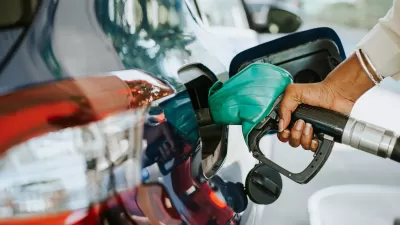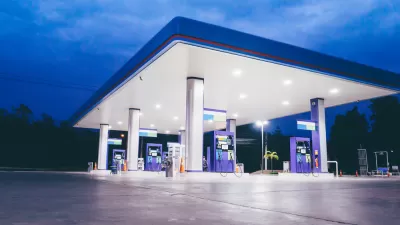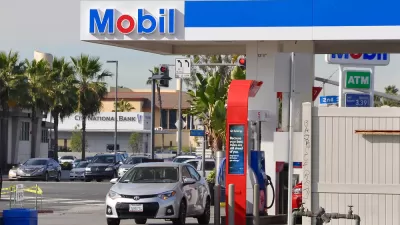The Washington Post's car columnist, Warren Brown, writes about the U.S oil addiction using insightful references to alcoholism -- describing the role of the government, the auto and oil industry, and most importantly, consumers.
"Oil fueled our ambitions and dreams. We believed in the eternity of oil, the everlasting cheapness of it...
We built suburbs with mini-mansions miles from urban work centers. We demanded idyllic neighborhoods peopled with clones of ourselves, a human selection afforded by a vast network of roads and the vehicles to drive them, all leading to and from genteel cul-de-sacs untouched by the unpredictable democracy of mass transit.
In all of this, we had enablers, politicians who supported our habit, told us not to worry, that there was more cheap oil to be found somewhere -- in another country, perhaps, if not our own. They said they would fix whatever needed fixing.
They did this in 1975 with approval of the first Corporate Average Fuel Economy (CAFE) rule mandating efficiency standards for companies selling cars and trucks in America.
The 1975 CAFE rules made driving cheaper. So we drove more, more than doubling the vehicle miles driven in the United States from 1975 through 2006, according to the Transportation Department.
We thanked our enablers for that gift and thanked them all the more because they asked us -- we voters and consumers -- to do absolutely nothing to pay for or otherwise support fuel conservation."
"It's morning after in America. We can't afford another binge. Our bacchanal affair with oil has ended"
FULL STORY: After Bingeing on Oil, the Country Has a Hangover

Maui's Vacation Rental Debate Turns Ugly
Verbal attacks, misinformation campaigns and fistfights plague a high-stakes debate to convert thousands of vacation rentals into long-term housing.

Planetizen Federal Action Tracker
A weekly monitor of how Trump’s orders and actions are impacting planners and planning in America.

Chicago’s Ghost Rails
Just beneath the surface of the modern city lie the remnants of its expansive early 20th-century streetcar system.

Bend, Oregon Zoning Reforms Prioritize Small-Scale Housing
The city altered its zoning code to allow multi-family housing and eliminated parking mandates citywide.

Amtrak Cutting Jobs, Funding to High-Speed Rail
The agency plans to cut 10 percent of its workforce and has confirmed it will not fund new high-speed rail projects.

LA Denies Basic Services to Unhoused Residents
The city has repeatedly failed to respond to requests for trash pickup at encampment sites, and eliminated a program that provided mobile showers and toilets.
Urban Design for Planners 1: Software Tools
This six-course series explores essential urban design concepts using open source software and equips planners with the tools they need to participate fully in the urban design process.
Planning for Universal Design
Learn the tools for implementing Universal Design in planning regulations.
planning NEXT
Appalachian Highlands Housing Partners
Mpact (founded as Rail~Volution)
City of Camden Redevelopment Agency
City of Astoria
City of Portland
City of Laramie





























